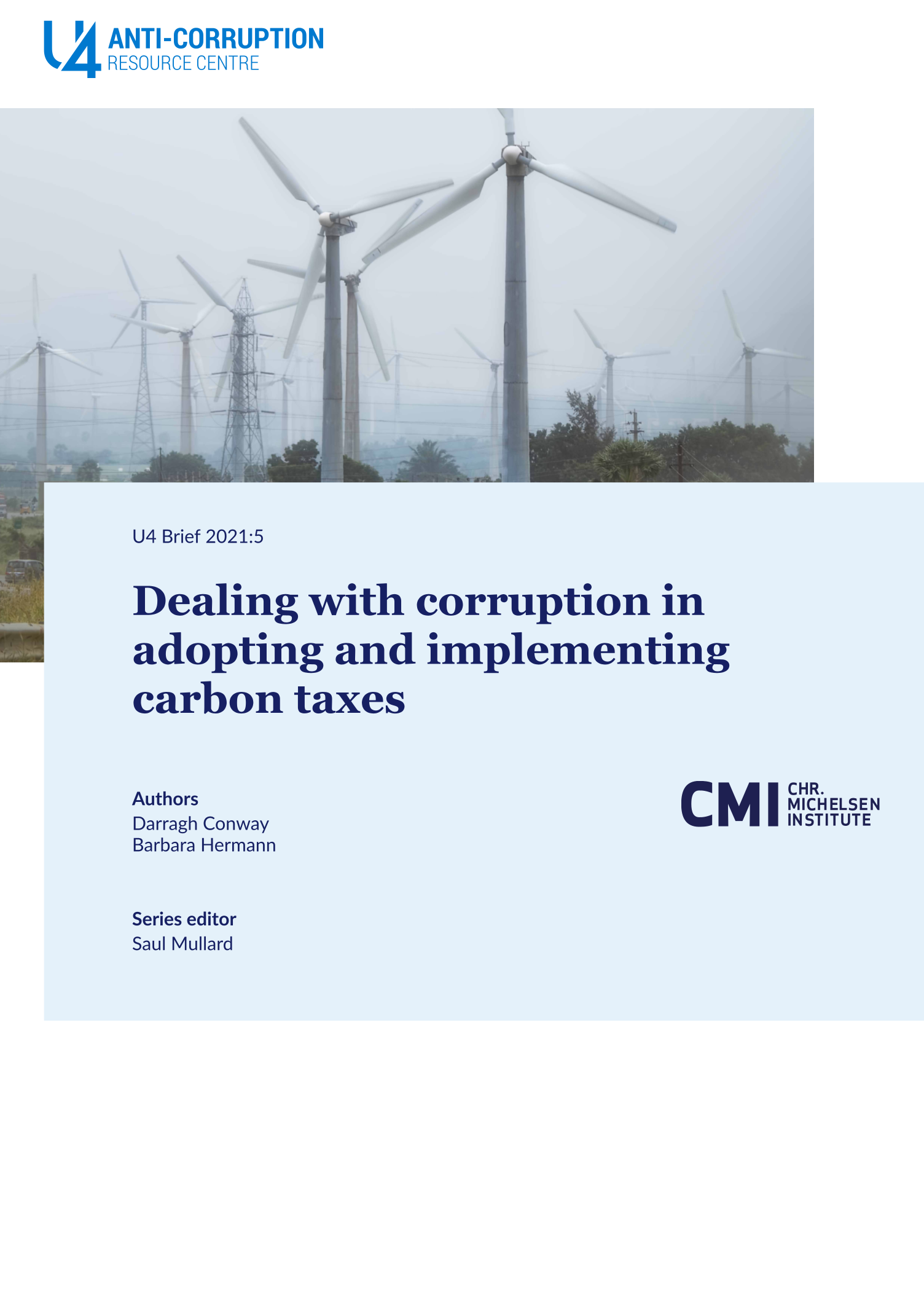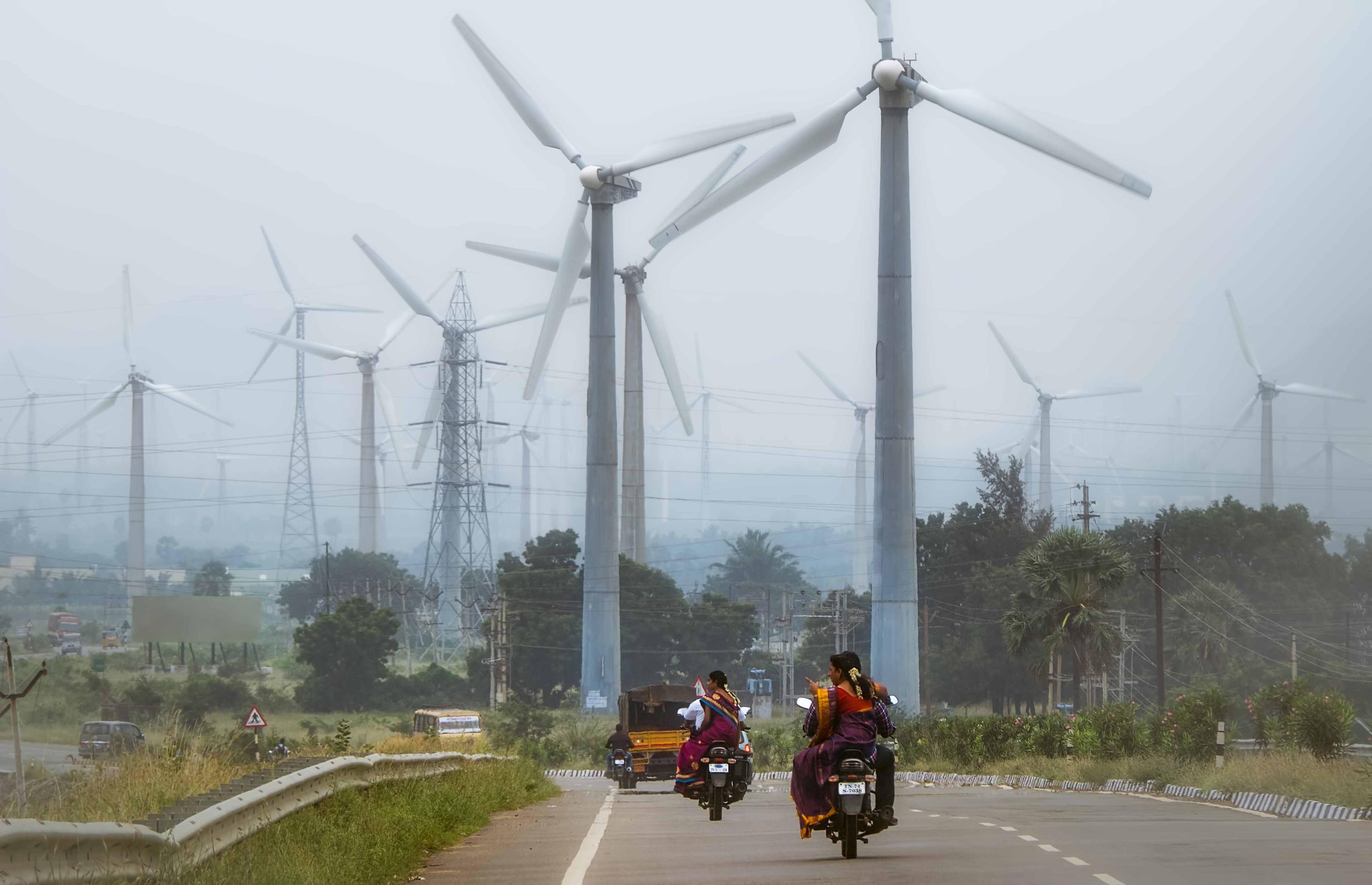Main points
- Corruption can reduce the effectiveness of carbon tax and make it harder to win the public support needed for government to adopt and maintain ambitious policies.
- The risk of corrupt acts taking place arise at different stages of the policy cycle. During policy development, corrupt behaviour can undermine the integrity of the policymaking and legislative process. During policy implementation, corruption can facilitate underreporting of emissions, tax evasion and embezzlement of tax revenue.
- Some of these risks are common across multiple policies, especially when they stem from broader governance issues, such as limited transparency and weak enforcement. Other risks, such as tax evasion and revenue embezzlement, are typical for any kind of tax system. But carbon tax also raises its own set of particular risks: measuring, reporting, and verifying (MRV) emissions creates opportunities for bribery; and the systems and entities needed for new options, such as allowing carbon offsets to pay tax liabilities, raise their own corruption risks.



